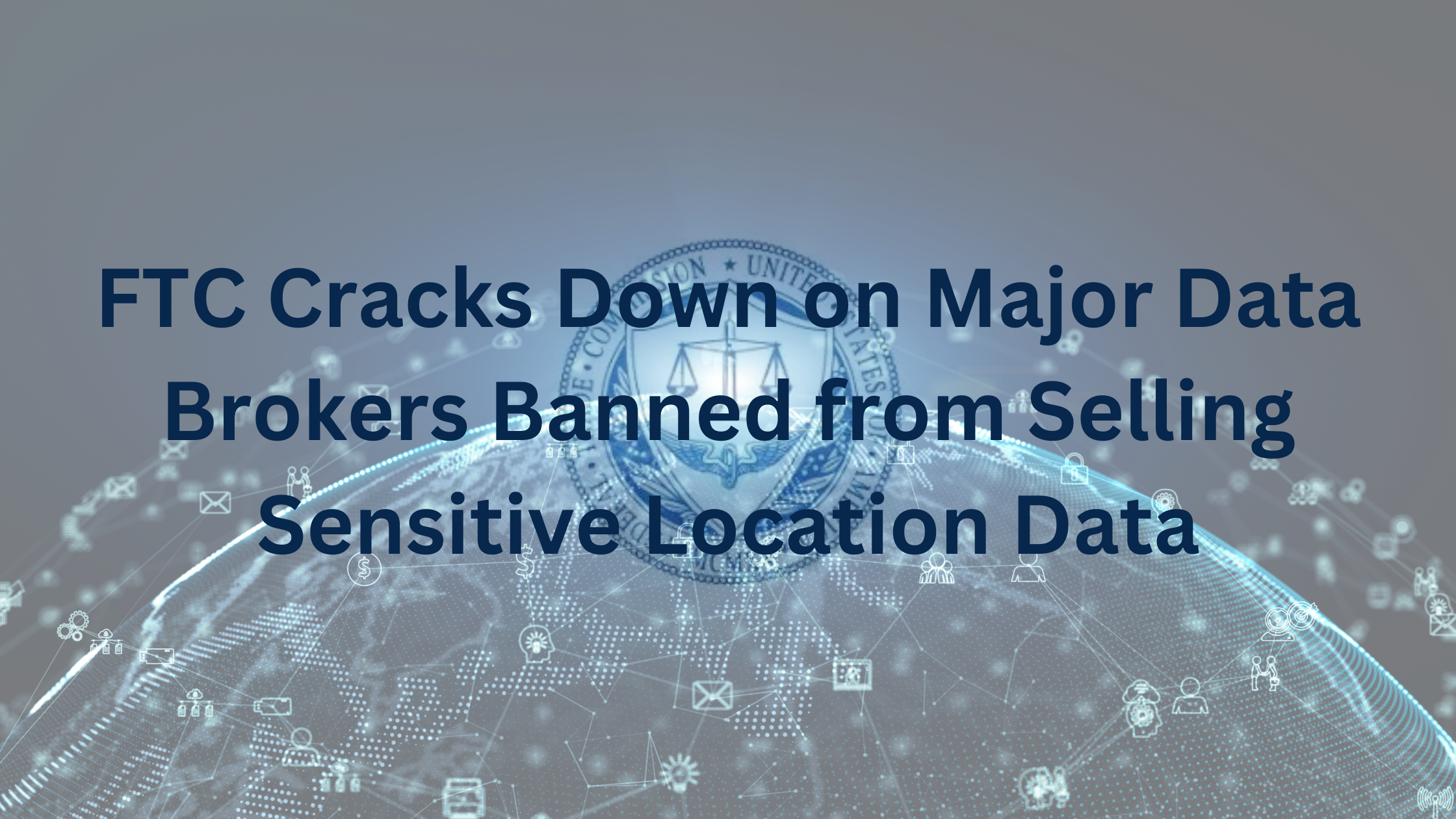Table of Contents
FTC Cracks Down on Major Data Brokers Banned from Selling Sensitive Location Data
In a landmark decision announced on December 3, 2024, the Federal Trade Commission (FTC) has taken significant action against two prominent data brokers, Gravy Analytics and Mobilewalla, prohibiting them from collecting and selling sensitive location data related to American citizens. This move is part of a broader effort to protect consumer privacy and civil liberties in an era where data collection practices have come under intense scrutiny.
The FTC's complaint alleges that both companies unlawfully tracked and sold sensitive location data without obtaining proper consent from consumers. This data included information about visits to healthcare facilities, religious institutions, correctional facilities, and other sensitive locations. The commission stated that Gravy Analytics and its subsidiary Venntel collected over 17 billion signals daily from approximately one billion mobile devices, utilizing this information for commercial and governmental purposes.
Under the proposed order, Gravy Analytics and Venntel are banned from selling, disclosing, or using sensitive location data in any of their products or services. They are also required to establish a program specifically designed to manage sensitive location data, ensuring that such information is not improperly used or shared. The FTC's ruling mandates the deletion of all historical location data that does not comply with the new regulations, marking a significant shift in how data brokers operate.
Mobilewalla is similarly restricted under the FTC's order. The company is prohibited from collecting consumer data from online advertising auctions for any purpose other than participating in those auctions. This marks a notable first for the FTC, which has identified this practice as an unfair act. Mobilewalla had previously been accused of using real-time bidding platforms to acquire sensitive consumer data without proper disclosure.
The implications of this ruling extend beyond just the two companies involved. The FTC's action is seen as a crucial step in addressing the broader issues of surveillance and privacy violations perpetrated by data brokers. Samuel Levine, Director of the FTC's Bureau of Consumer Protection, emphasized that "surreptitious surveillance by data brokers undermines our civil liberties" and poses risks to various vulnerable groups, including servicemembers and religious minorities.
This crackdown is not an isolated incident; it represents the FTC's fifth enforcement action targeting data brokers for mishandling sensitive location data this year alone. Previous actions have included investigations into other companies like Kochava and X-Mode for similar violations involving the sale of location data linked to sensitive sites.
The recent FTC ruling comes at a time when lawmakers are increasingly concerned about the government's purchase of consumer information from data brokers. A bipartisan bill passed by the House earlier this year aims to prevent government agencies from acquiring Americans' personally identifiable information without a warrant. This legislative push underscores growing concerns about privacy rights in an age where personal data can be easily commodified.
In light of these developments, both Gravy Analytics and Mobilewalla face potential civil penalties for any violations of the proposed order, with fines reaching up to $51,744 per infraction. As the public comment period for the proposed order unfolds over the next 30 days, stakeholders across various sectors will be watching closely to see how these changes will reshape the landscape of consumer privacy and data protection.
The FTC's decision has garnered support from privacy advocates who argue that it is essential for safeguarding individual rights in an increasingly digital world. Senator Ron Wyden has praised the agency's actions as a necessary step toward protecting sensitive information about law enforcement personnel and military members from being sold without their knowledge or consent.
As this story continues to develop, it signals a pivotal moment in the ongoing battle over consumer privacy rights. The FTC's decisive action against Gravy Analytics and Mobilewalla could set a precedent for future regulations governing how data brokers handle sensitive information, ultimately fostering greater accountability in an industry often criticized for its lack of transparency.
Found this article interesting? Keep visit thesecmaster.com, and our social media page on Facebook, LinkedIn, Twitter, Telegram, Tumblr, Medium, and Instagram and subscribe to receive tips like this.
You may also like these articles:
What is Personal Information? And, How to Protect Personal Information?
List of Federal and State Data Privacy Laws in the United States
Managing Data Retention: Developing a Secure Information Lifecycle Strategy
India Passed Digital Personal Data Protection Bill (DPDPB)- What Does it Mean for a Common Man?
Anthony Denis
Anthony Denis a Security News Reporter with a Bachelor's in Business Computer Application. Drawing from a decade of digital media marketing experience and two years of freelance writing, he brings technical expertise to cybersecurity journalism. His background in IT, content creation, and social media management enables him to deliver complex security topics with clarity and insight.
